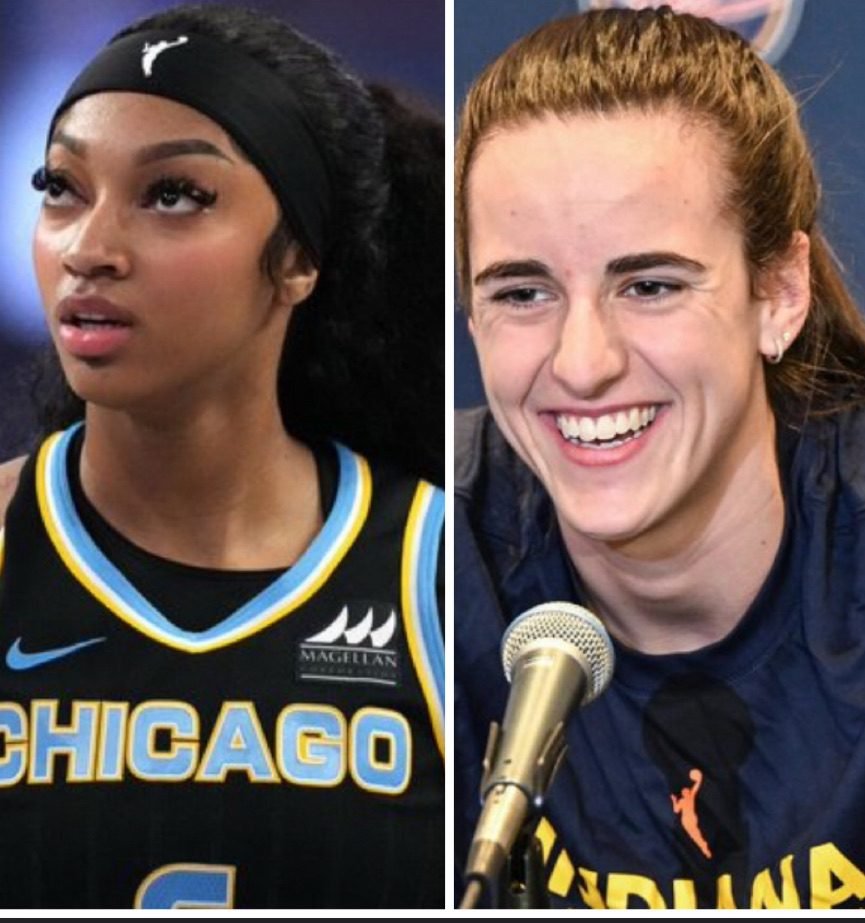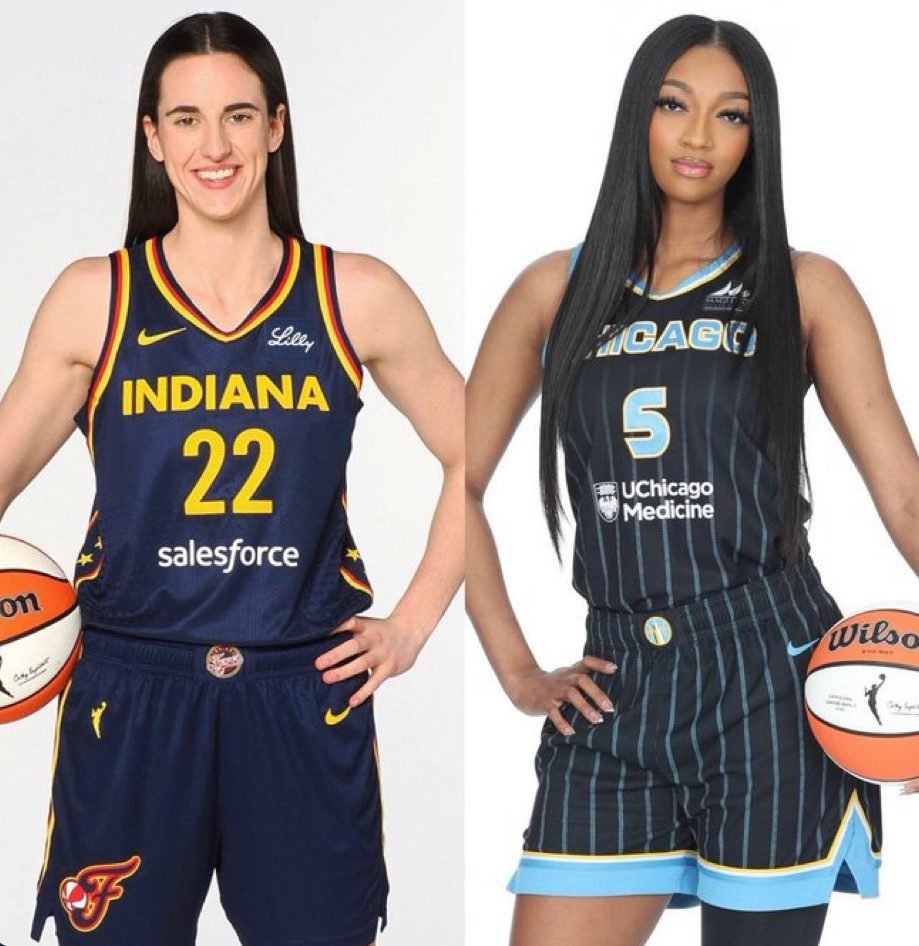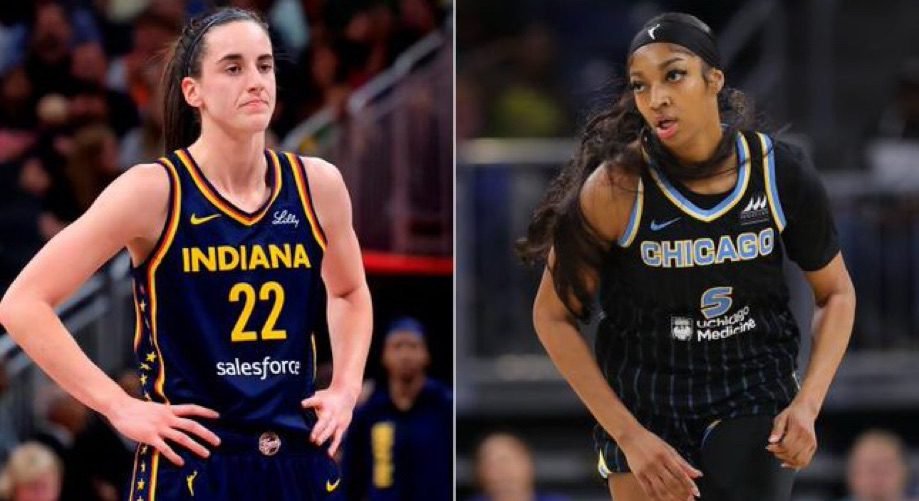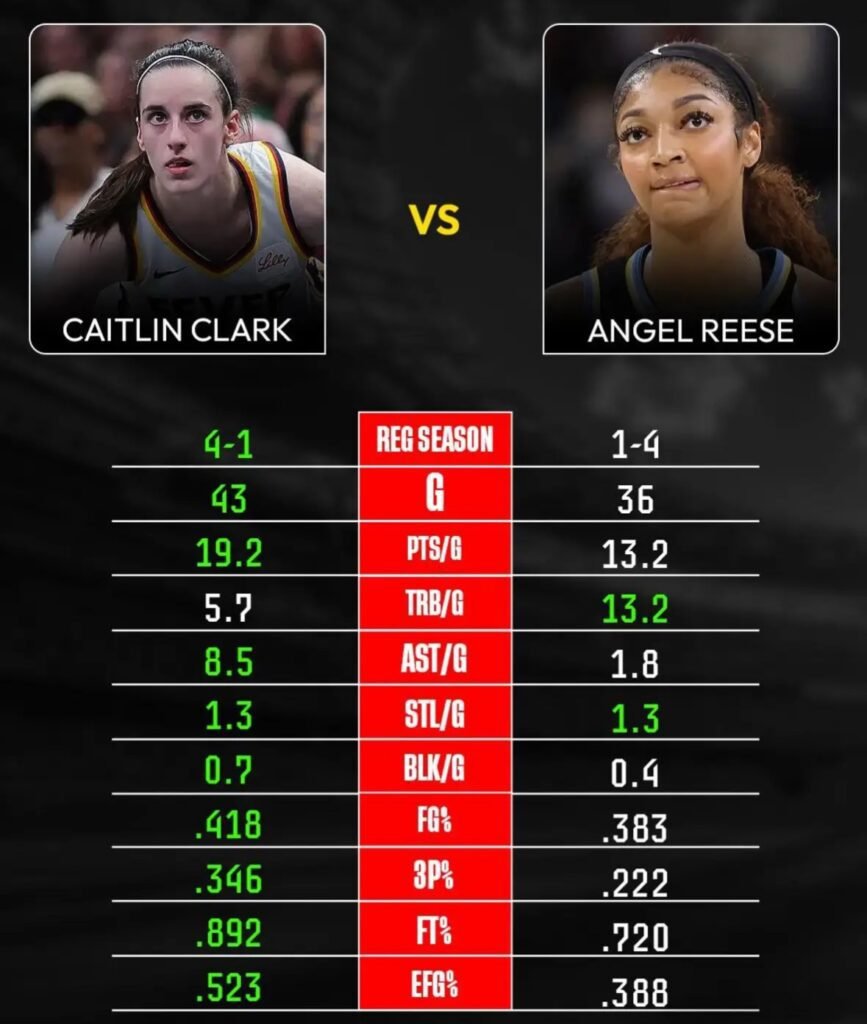Ice Cube, co-founder of the Big3 basketball league, has confirmed that Caitlin Clark was offered a $5 million contract to play in the league’s upcoming season—but no similar offer was extended to Angel Reese. The move has sparked a wave of criticism, confusion, and heated debate among fans, many of whom feel the decision underscores a growing divide in how the two top WNBA rookies are treated by both media and corporate sponsors.
The Big3, a 3-on-3 professional basketball league founded in 2017, is largely known for its inclusion of former NBA players and physical, fast-paced games. Ice Cube announced in March that the league had made what he called a “historic” offer to Caitlin Clark, a standout guard who recently joined the Indiana Fever as the No. 1 overall WNBA draft pick. The deal was reported to be worth $5 million for an eight-game regular season plus two possible playoff appearances.

The offer quickly made headlines not just because of the amount—which dwarfs Clark’s $338,000 WNBA rookie contract—but also because it represented a rare opportunity for a female player to join a traditionally male-dominated league. Ice Cube referred to Clark as a “generational talent” and praised her ability to grow the sport, telling fans and reporters that she was the ideal person to help open doors for women in pro basketball.
However, when asked whether Angel Reese had been offered a similar opportunity, Cube confirmed that she had not. Speaking to TMZ Sports, he said, “We didn’t receive that kind of feedback from our sponsors about Angel Reese.” He added that he believed Reese was a “great player,” but admitted the league did not view her as carrying the same market value as Clark, at least from a sponsorship and audience-engagement perspective.

That comment set off a storm of criticism online. Many fans immediately expressed disappointment that Reese, who won a national championship with LSU and has become one of the most visible and talked-about players in the women’s game, was excluded from the Big3 conversation. The news sparked questions around equity, visibility, and whether corporate interests are dictating opportunity in a way that disproportionately affects Black athletes.
Reese has not publicly commented on the Big3 situation. Since entering the WNBA as a top draft pick by the Chicago Sky, she has made headlines with strong performances, notably becoming the first rookie in league history to record 10 straight double-doubles. She also recently signed a major endorsement deal with Reebok and appeared on the cover of NBA 2K26’s WNBA edition.
Supporters of Reese were quick to point out that she has contributed just as significantly to the rise in popularity of women’s basketball as Clark. Her outspoken personality, rebounding dominance, and willingness to challenge narratives have all helped to draw millions of viewers during her college career and into her early days in the pros. Many online pointed to the 2023 NCAA tournament, where Clark and Reese faced off in one of the most-watched women’s games in history, as evidence that both players deserve equal consideration when it comes to groundbreaking opportunities.

For its part, Big3 officials have maintained that the offer to Clark was based on careful financial analysis. According to Ice Cube, the league met with sponsors and partners to determine which athletes could have the greatest impact in terms of visibility, ticket sales, and brand engagement. Clark, who already has endorsement deals with Nike, Gatorade, and State Farm, reportedly met all of their criteria.
Still, the absence of any offer to Reese has left a visible gap in the league’s broader push for inclusion. Critics argue that if the Big3 truly wants to be seen as progressive, it should not limit historic offers to just one athlete—especially when others, like Reese, have proven track records of performance and popularity.
Some have suggested that the situation highlights an uncomfortable reality about how women athletes are evaluated. Caitlin Clark is a white athlete with a traditionally marketable media persona, while Reese, a Black athlete known for her fierce competitiveness and outspokenness, is sometimes framed as controversial. Fans and commentators have noted that similar behavior is often interpreted differently depending on who displays it—Clark’s trash talk is called fiery and confident, while Reese’s has been criticized as excessive or aggressive.

The contrast has reignited ongoing conversations about race, branding, and access in women’s sports. The situation has also raised questions about how much control players truly have over their public image and which narratives get amplified by mainstream media and corporate partnerships.
As of now, Caitlin Clark has not accepted the Big3 offer. In a press interview earlier this summer, she said she was focused on her WNBA career and had not made a decision about any offseason plans. If she were to accept, she would become the first woman to play in the league and the highest-paid Big3 athlete in its history.
Whether Reese will receive a future offer remains unclear. Ice Cube has not ruled it out, but there has been no public indication that any new discussions are underway.
In the meantime, both Clark and Reese continue to grow their professional resumes. Clark recently notched her first WNBA triple-double, while Reese continues to dominate on the boards and lead her team in scoring and defensive stats. Both are frontrunners for Rookie of the Year honors and are expected to be central figures in the WNBA’s next era.
What remains to be seen is how leagues like the Big3—and the sports industry as a whole—will respond to the growing calls for equitable treatment of athletes who don’t always fit the traditional mold of “marketable.” Fans are watching closely, and so are players.
In an era where visibility and endorsement deals often define opportunity, the question of who gets invited, who gets paid, and who gets left out isn’t just about basketball anymore. It’s about how progress is defined, and whether the system is evolving to include all the people who helped build the momentum in the first place.